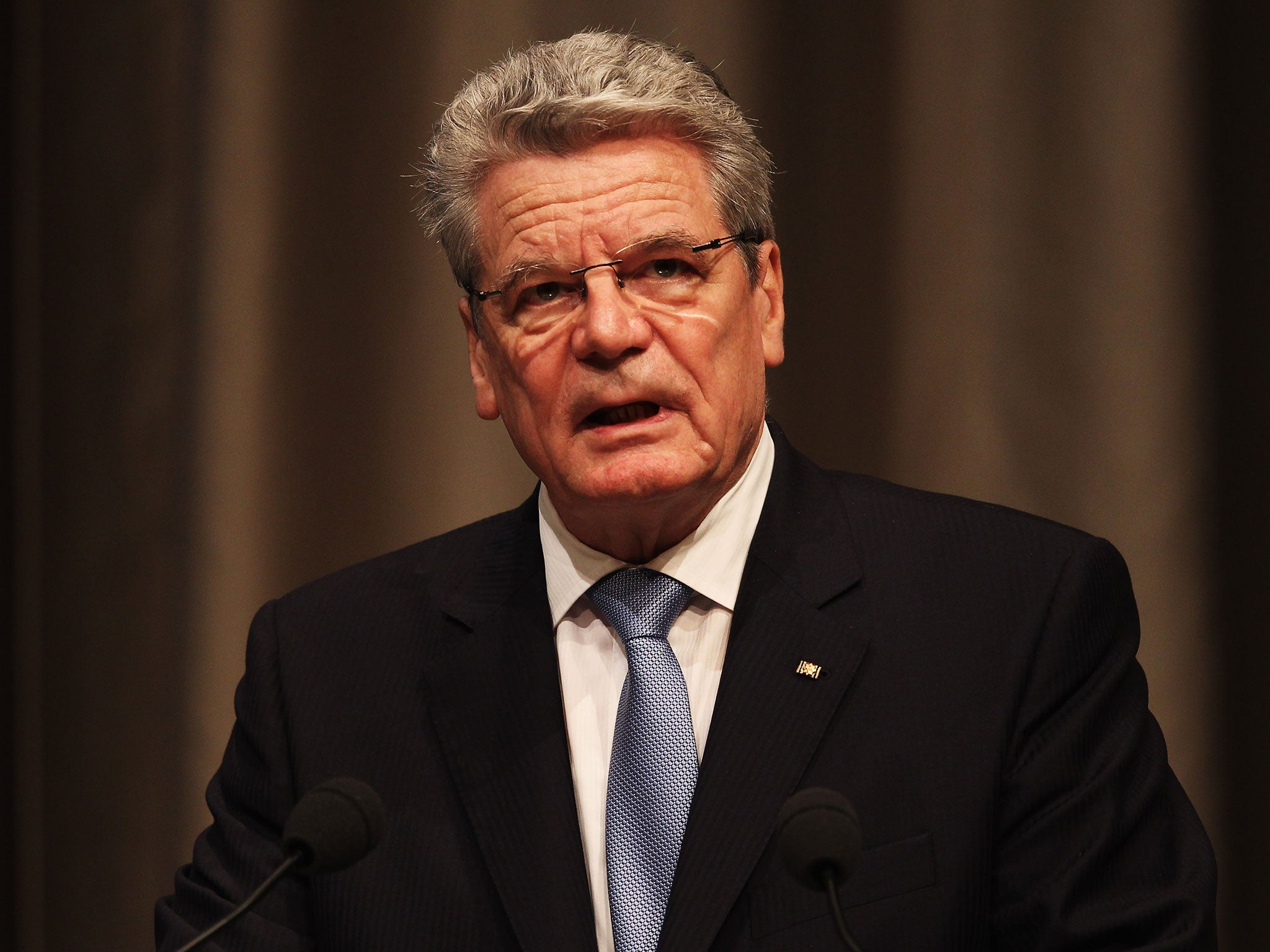Germany’s Great War commemorations are filled with shame
For many, the ‘Ur-Katastophe’ of 1914-18 only ended with the fall of the Berlin Wall in 1989

Your support helps us to tell the story
From reproductive rights to climate change to Big Tech, The Independent is on the ground when the story is developing. Whether it's investigating the financials of Elon Musk's pro-Trump PAC or producing our latest documentary, 'The A Word', which shines a light on the American women fighting for reproductive rights, we know how important it is to parse out the facts from the messaging.
At such a critical moment in US history, we need reporters on the ground. Your donation allows us to keep sending journalists to speak to both sides of the story.
The Independent is trusted by Americans across the entire political spectrum. And unlike many other quality news outlets, we choose not to lock Americans out of our reporting and analysis with paywalls. We believe quality journalism should be available to everyone, paid for by those who can afford it.
Your support makes all the difference.Germany will officially mark the 100th anniversary of its fateful entry into the First World War outside its own borders this weekend. The gesture speaks volumes about feelings of national shame for the catastrophe that are still palpable a century later.
On Sunday Germany’s President Joachim Gauck will clasp the hand of his French counterpart, François Hollande, during a solemn ceremony on French soil that will take place some 15 miles west of the German frontier.
The chosen venue is a hilltop in the Vosges mountains called Hartmannswillerkopf. Between 25,000 and 30,000 soldiers from both sides died fighting for its control. Until recently there was nothing to remind visitors that German soldiers lost their lives there. But on Sunday the two presidents will lay the foundation stone for a new Franco-German Great War memorial and exhibition centre.
Gerd Krumreich, a German historian and Great War expert, has accused his government of being “fundamentally uninterested” in the centenary. It is a charge that even Chancellor Merkel has not denied outright.
In May she opened Germany’s main exhibition on the war, at the German History Museum in Berlin. Standing in front of a giant photograph of a field of Flanders poppies, against which is written “1914-2014: what have we learned?”, she told a group of young people that “Germany has until now not had the First World War much in mind.”
The Chancellor admitted that even in her own family the events of the Second World War had been “very much more dominant”. In Germany the Great War is seen almost universally as the “Ur-Katastrophe” – the mother of all catastrophes – that really only ended 25 years ago this year with the fall of the Berlin Wall.
Two images have been much used in this year’s flood of German Great War exhibitions, films and television documentaries to capture the breadth of the disaster. One is a 1914 sepia photograph of a German soldier in a spiked helmet marching off to war on the streets of Berlin. His smiling sweetheart proffers a bunch of flowers. The next shot is of the railway tracks leading to the entrance of the Auschwitz death camp.
The pairing sums up the traditional accepted narrative of the war in Germany (encouraged by revered historians such as Fritz Fischer), in which Kaiser Wilhelm II, a monarch widely dismissed even by Germans as the deluded head of a militaristic Prussian-dominated empire, plunges the nation into war in a “grab for world power”.
For most Germans, their nation’s subsequent defeat, the draconian terms of the Versailles Treaty, the Weimar Republic, the rise of the Nazis, the Second World War and the Holocaust are the direct consequences of 1914-18. For Angela Merkel and millions of other Germans, the disasters of 1939-45 and Germany’s post-war division all begin with 1914, but the date is overshadowed by the enormity of German crimes thereafter.
Even the famous Christmas Truce of 1914, when German and British soldiers left their trenches to play football in no-man’s land, is not mentioned in Berlin’s main Great War exhibition. It seems the curators found it irrelevant to the subsequent dreadful course of German history.

German shame and guilt for 1914 and what followed it may explain why The Sleepwalkers: How Europe Went to War in 1914, a recent book by the Australian historian Christopher Clarke, has been a bestseller in Germany. Clarke argues that rather than being solely responsible for the war, Germany more or less “sleepwalked” into a conflict whose root causes were manifold.
He is not alone. The German historians Herfried Mükler and Jörg Friedrich argue that Germany in 1914 was just one in a gang of cynically self-obsessed nations including Britain, France, Russia and Austro-Hungary that bore responsibility for the deaths of millions. Recent disclosures that Britain’s King George V asked his prime minister to “find an excuse” to go to war against Germany fit such an interpretation.
However, the German historian Hans-Ulrich Wehler said Clark’s book merely exposed the Germans’ “deep-seated desire to free themselves from all accusations of guilt”. And Andreas Wirsching, another historian, wrote that German readers were using it to cure themselves of the “German disease of self-pity”.
If Germany’s war commemorations are half-hearted, many would argue that open debate has barely started.
Join our commenting forum
Join thought-provoking conversations, follow other Independent readers and see their replies
Comments